Before diving into the depths of Asian rice bowls, let’s chat about what goes well with them. You can elevate your bowl experience by adding fresh herbs like cilantro or green onions. A soft-boiled egg adds creaminess, while crispy fried shallots provide texture.
If you want some heat, try adding sliced jalapeños or a drizzle of sriracha. For a crunchy surprise, sprinkle on toasted sesame seeds or peanuts.
The beauty of an Asian rice bowl is its versatility, allowing you to mix and match ingredients based on your cravings or what you have on hand.
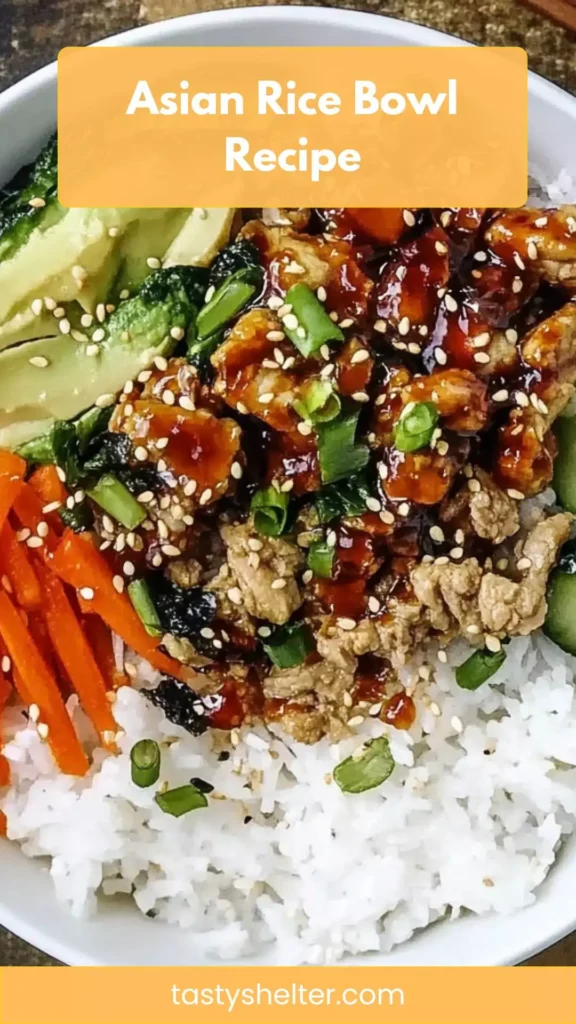
I’ve always been captivated by food that tells a story. When I think of an Asian rice bowl, I envision vibrant colors, harmonious flavors, and a one-bowl meal that satisfies both the body and soul.
This dish isn’t just a meal; it’s an experience of textures and tastes that transport you straight to an Asian street market. Whether you’re in a hurry or have time to spare, preparing an Asian rice bowl is refreshing and endlessly customizable.
This is where tradition meets innovation. Ready to roll up your sleeves and create a dish that delights? Let’s go on this culinary adventure together!
What is an Asian Rice Bowl?
At its core, an Asian rice bowl is a bowl of steamed rice topped with a variety of other ingredients.
Think of it like a canvas where rice is the base, and you paint it with vibrant colors. You can find marinated meats, roasted vegetables, fresh garnishes, and rich sauces topping the rice, each bite offering a new flavor sensation.
Each region in Asia has its own take on this dish, drawing from local ingredients and cooking methods. From the savory teriyaki chicken in Japanese cuisine to the fragrant curry chicken in Indian kitchens, there is a wealth of options to explore.
Why You’ll Love This Asian Rice Bowl
What’s not to love?
For starters, versatility reigns supreme here. Whether you’re a meat lover, vegetarian, or vegan, there’s an Asian rice bowl for everyone. You can get creative with your palate, allowing your personal preferences and dietary needs to guide you. Want something spicy? Toss in some chili oil. Prefer it mild?
Go easy on the sauce.
On a nutritional level, you’re looking at a well-rounded meal. Rice offers a base of carbohydrates for energy, while your choice of proteins and vegetables provides essential nutrients. For instance, lean chicken or tofu packs protein, while colorful veggies deliver vitamins and minerals. It’s a dish that doesn’t just taste good; it fuels your body right.
Plus, it’s a time-saver! When I’m racing against the clock but craving something wholesome, an Asian rice bowl has my back. Most ingredients can be prepped ahead of time, and the final assembly takes mere minutes.
And let’s not forget the visual appeal. Imagine a bowl filled with vibrant green broccoli, vibrant orange carrots, and perfectly grilled chicken pieces! Food that looks good also tastes better – I can confidently say that.
The Ingredients You Will Need to Make an Asian Rice Bowl
- 1 lb 99% lean ground chicken
- 1 tsp gochujang
- 2 cups cooked quinoa
- 2 tbsp vegetable broth
- 1 tbsp toasted sesame oil
- 4 cups mixed vegetables (fresh, frozen, or a custom blend of your choice)
- 1/2 tsp onion powder
- 1/2 tsp ground turmeric
- 2 tbsp maple syrup
- 1 ½ tbsp rice wine vinegar
- 1/4 cup low-sodium tamari
- 1 tsp arrowroot powder
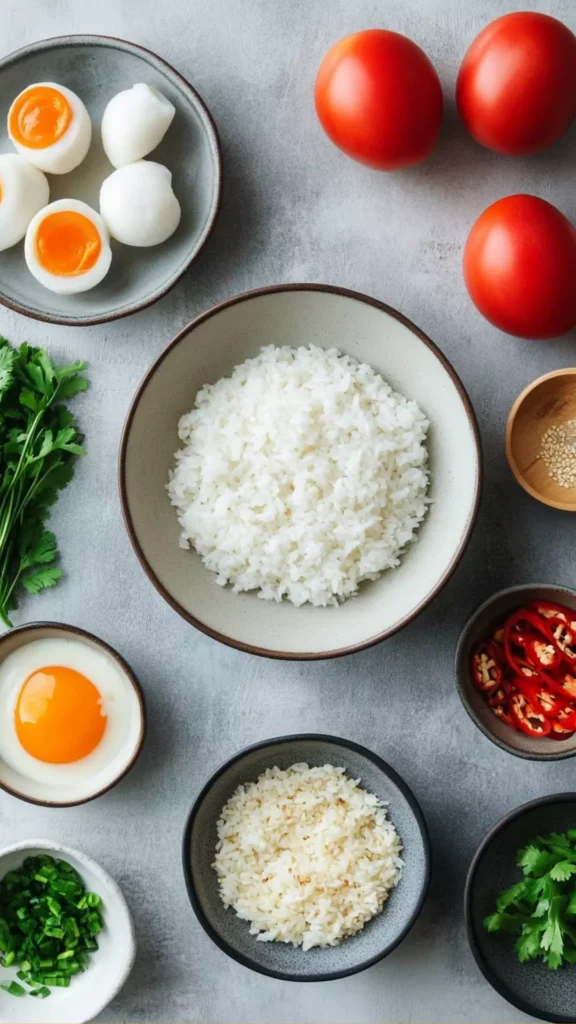
Directions
Step 1: Cook Your Base
Start by preparing your quinoa. Rinse 1 cup of dry quinoa under cold water in a fine mesh strainer. In a pot, combine it with 2 cups of water and bring it to a boil. Reduce heat, cover, and let it simmer for about 15 minutes, or until all water is absorbed. Once it’s done, fluff it with a fork and set it aside.
Step 2: Sauté Your Protein
In a large skillet, heat 1 tablespoon of toasted sesame oil over medium-high heat.
Add the lean ground chicken and cook, breaking it apart with a spatula, for about 5 minutes, or until brown. Stir in 1 teaspoon of gochujang and 2 tablespoons of vegetable broth, ensuring the chicken absorbs all the flavors. Continue cooking for another 3 minutes.
Step 3: Add the Vegetables
Next, toss in your mixed vegetables. Whether you’re using frozen or fresh, you choose! Sauté them with the chicken for another 5 minutes, seasoning with onion powder and turmeric. Ensure everything is combined and the veggies are tender but still vibrantly colored.
Step 4: Create the Sauce
Now it’s time for the good stuff. In a small bowl, whisk together the rice wine vinegar, tamari, maple syrup, and arrowroot powder. Pour this sauce over the chicken and veggies, stirring until it thickens slightly.
Step 5: Assemble the Bowl
In individual serving bowls, start with a generous scoop of quinoa as your base. Top it off with the chicken and vegetable mixture.
Step 6: Garnish and Enjoy
Now it’s time to have fun! Add toppings such as sliced green onions, sesame seeds, or a soft-boiled egg.
Notes
- Prep Ahead – Chop your vegetables and cook your quinoa in advance for a speedy meal on busy nights.
- Mix Your Proteins – Feel free to swap ground chicken for tofu, beef, or shrimp. Each choice brings a unique flavor.
- Sauce It Up – Adjust the quantity of gochujang depending on your spice preference. It can make a significant difference.
- Include Seasonal Vegetables – Using seasonal produce can elevate flavors and cut costs.
- Double the Recipe – Cooking a larger batch means leftovers for tomorrow. These rice bowls taste great even after a day in the fridge!
Storage Tips
If you have leftovers (which I highly doubt because they’re so good!), store them in an airtight container in the fridge.
Enjoy them within three days. To reheat, microwave them for 1-2 minutes or warm them in a skillet on the stove. Avoid adding ingredients like garnishes or sauces until you reheat to maintain freshness.
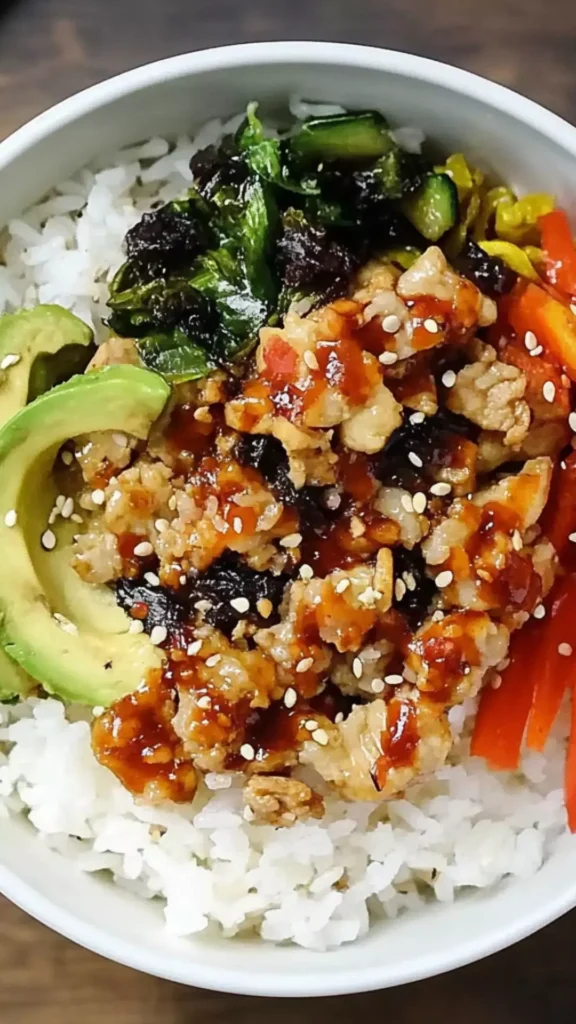
Serving Suggestions
Here are five suggestions to elevate your Asian rice bowl experience:
- Add a Soft-Boiled Egg – Adding a soft-boiled egg on top not only looks beautiful but also adds a creamy texture.
- Pickled Vegetables – Include pickled carrots or radishes for a zesty kick.
- Toasted Nuts or Seeds – Sprinkle some toasted peanuts or sunflower seeds for an additional crunch.
- Herbs Galore – Fresh herbs like cilantro or mint can lighten the flavor profile and brighten the dish.
- Sauce it Up – A drizzle of hoisin or sweet chili sauce can take this bowl to the next level of flavor.
What Other Substitutes Can I Use in an Asian Rice Bowl?
Feeling creative? Here are five alternatives to consider:
- Quinoa for Rice – Quinoa offers more protein and fiber than white rice while maintaining that satisfying texture.
- Ground Tofu for Chicken – Crumbled tofu can substitute ground chicken perfectly, absorbing flavors and providing a hearty base.
- Broccoli for Mixed Vegetables – Fresh steamed broccoli can add a nice crunch and nutrient boost.
- Chickpeas for Protein – Chickpeas are rich in protein and fiber, making them an excellent addition for a vegetarian option.
- Tamari for Soy Sauce – If you prefer a gluten-free alternative, tamari works beautifully without sacrificing flavor.
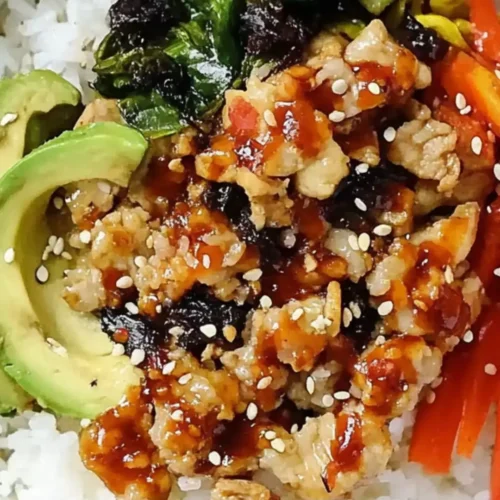
Asian Rice Bowl Recipe
Equipment
- Pot
Ingredients
- 1 lb 99% lean ground chicken
- 1 tsp gochujang
- 2 cups cooked quinoa
- 2 tbsp vegetable broth
- 1 tbsp toasted sesame oil
- 4 cups mixed vegetables fresh, frozen, or a custom blend of your choice
- 1/2 tsp onion powder
- 1/2 tsp ground turmeric
- 2 tbsp maple syrup
- 1 ½ tbsp rice wine vinegar
- 1/4 cup low-sodium tamari
- 1 tsp arrowroot powder
Instructions
- Start by preparing your quinoa. Rinse 1 cup of dry quinoa under cold water in a fine mesh strainer. In a pot, combine it with 2 cups of water and bring it to a boil. Reduce heat, cover, and let it simmer for about 15 minutes, or until all water is absorbed. Once it’s done, fluff it with a fork and set it aside.
- In a large skillet, heat 1 tablespoon of toasted sesame oil over medium-high heat.
- Add the lean ground chicken and cook, breaking it apart with a spatula, for about 5 minutes, or until brown. Stir in 1 teaspoon of gochujang and 2 tablespoons of vegetable broth, ensuring the chicken absorbs all the flavors. Continue cooking for another 3 minutes.
- Next, toss in your mixed vegetables. Whether you’re using frozen or fresh, you choose! Sauté them with the chicken for another 5 minutes, seasoning with onion powder and turmeric. Ensure everything is combined and the veggies are tender but still vibrantly colored.
- Now it’s time for the good stuff. In a small bowl, whisk together the rice wine vinegar, tamari, maple syrup, and arrowroot powder. Pour this sauce over the chicken and veggies, stirring until it thickens slightly.
- In individual serving bowls, start with a generous scoop of quinoa as your base. Top it off with the chicken and vegetable mixture.
- Now it’s time to have fun! Add toppings such as sliced green onions, sesame seeds, or a soft-boiled egg.
Notes
- Prep Ahead – Chop your vegetables and cook your quinoa in advance for a speedy meal on busy nights.
- Mix Your Proteins – Feel free to swap ground chicken for tofu, beef, or shrimp. Each choice brings a unique flavor.
- Sauce It Up – Adjust the quantity of gochujang depending on your spice preference. It can make a significant difference.
- Include Seasonal Vegetables – Using seasonal produce can elevate flavors and cut costs.
- Double the Recipe – Cooking a larger batch means leftovers for tomorrow. These rice bowls taste great even after a day in the fridge!
Nutrition
Frequently Asked Questions
Conclusion
Asian rice bowls offer a delightful experience—one that marries convenience with creativity. It’s a dish that invites you to play with flavors and textures while nourishing your body.
Whether you’re whipping it up for a quick weeknight dinner or meal-prepping for the week ahead, this recipe has you covered.
So roll up your sleeves, gather your ingredients, and make those rice bowls sing! You’ll find that once you step into this culinary adventure, you will be hooked. Happy cooking!

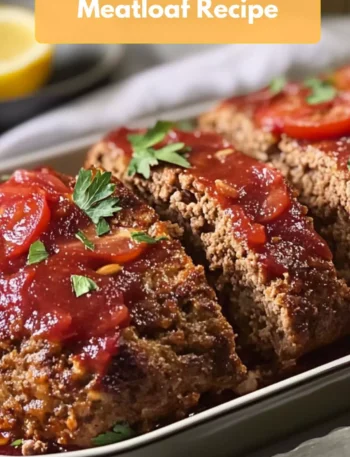
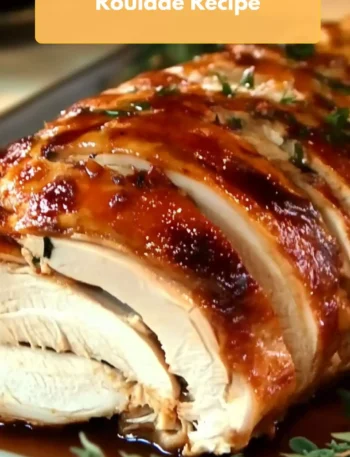
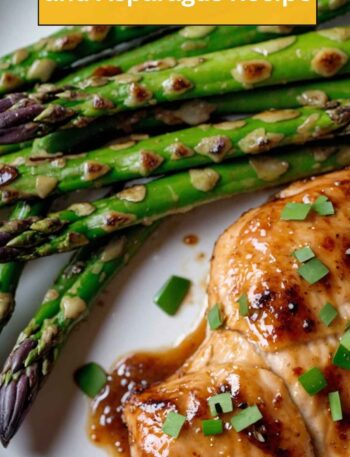
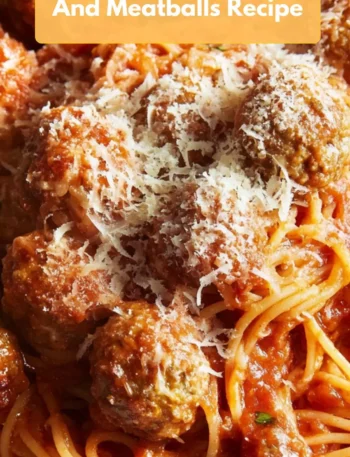
Thank you for sharing your recipes with us! I am in a late summer rut in the middle of 90* days and needed some new summer recipes that will wow our taste buds with 18 chicken vegetable grilled to perfection and look beautiful on the plate. I love the Southwest chicken bowls so that is where I will start tomorrow. Stay tuned for reviews…..